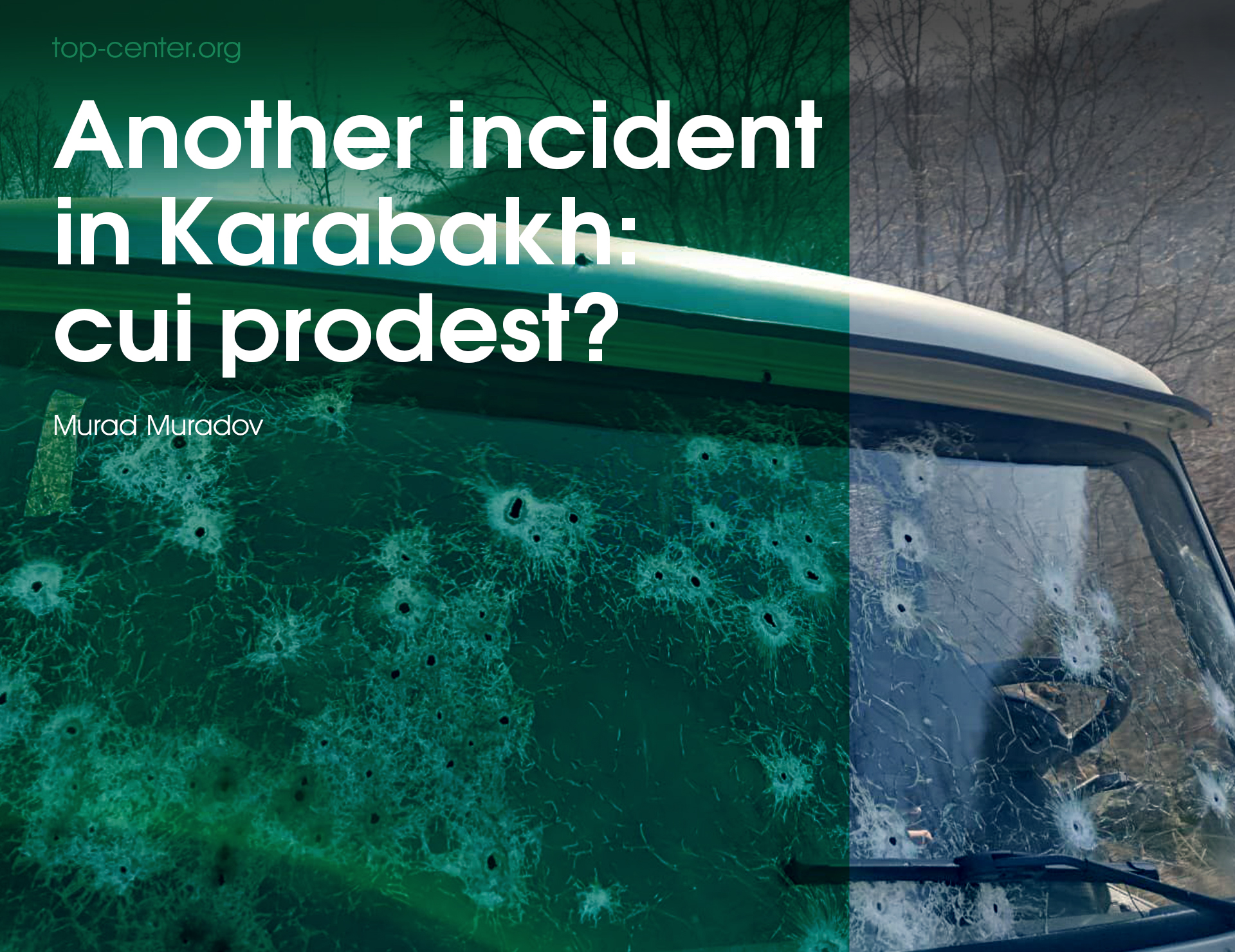Another incident in Karabakh: cui prodest?

The armed incident in Karabakh on March 5, when a shooting happened between Azerbaijani officers and an armed Armenian vehicle, ending with casualties on both sides, came totally out of the blue. It was the first such event in months following the deadly border fights on September 12-13 and occurred just days after Baku had appointed a special representative for the communication with the Karabakh Armenians and the first meeting in this format had been held in Khojaly (now under the Russian peacekeepers’ control). Azerbaijan blamed Armenia for continuing to supply the separatist entity with weapons and Russian forces for enabling this practice. Azerbaijani MFA almost immediately issued a statement demanding the immediate withdrawal of the remaining Armenian military units from Karabakh. Shortly afterwards, the so-called “President” of the “Nagorno-Karabakh Republic” Araik Harutyunyan announced that Baku “demands integration of Karabakh into Azerbaijan” and that they choose to continue resistance, although it could entail serious consequences.
The fact that this event happened exactly on the eve of the visit of the EU and US representatives or the Armenian-Azerbaijani negotiations, Toivo Claar and Luis Bono, to Baku, is quite suspicious in itself. Russia on a number of occasions has expressed its poorly disguised frustration with the Western activism on the Karabakh issue, and during his recent visit to Baku Russian MFA Lavrov openly stated that the EU’s presence in Armenia is a mistake. While Baku also had certain disgruntlement with Brussels over this border mission, Russia’s unwillingness to leave Karabakh and enable progress in the talks between Azerbaijan and Armenia remains a more fundamental security risk.
Such an occurrence days after the appointment of Ramin Mammadov and an Azerbaijani-Armenian meeting in Khojaly and on the eve of Toivo Claar and Luis Bono’s visits to Azerbaijan, seems very suspicious and it was hardly in Azerbaijan’s interest to initiate hostilities. Judging by the rapid escalation in the semi-official rhetoric aimed at the Russian peacekeepers (on March 7, the analytical portal “Caliber.az”, close to the government, claimed that they would not stay in Karabakh), Baku considers Moscow as a probable culprit in this story. It should be added that shortly before these events Ruben Vardanyan, the Russian oligarch widely believed to be “Moscow’s man in Karabakh” who by reviving intransigent pro-independence rhetoric caused much anger in Baku, had been sacked from his “position” of the “state minister of the Nagorno-Karabakh Republic”. Bono’s visit also brought mixed messages, as the American diplomat said Azerbaijan is not against including Karabakh in the negotiation process, something hardly plausible even a couple of months earlier. On March 8, President Aliyev also confirmed that Baku had received a new, updated project of a peace agreement from Armenia and is now reviewing it.
The events of the last few days demonstrate that the region has come to a bifurcation point and widely diverging scenarios can now occur. However, a few conclusions should be made. First, the narrative of the “Russian-Azerbaijani alliance” trying to punish democratic Armenia and energetically promoted by many Armenians and pro-Armenian Western circles, has been finally found void since no one can now claim it without the risk of being ridiculed. Secondly, it shows that the current Armenian leadership is either incapable of preventing the systematic violations of the November 9 agreement which disrupt the already fragile peace process, or unwilling to do so. In either case, this reality casts a grave doubt upon the plausibility of the future negotiation process. Finally, a strong signal once more has been sent to the international community which seems to care much more about the plight of Karabakh Armenians rather than the issue of continued militarisation of Karabakh that disables the genuine negotiation process and discredits the very idea of peaceful co-existence between the two nations.
Demilitarisation must be absolutely prioritised, especially as the working mechanism of civil communication between Baku and the Armenian community has been established and there are no grounds left to argue they have genuine security concerns. The constant flow of anti-Azerbaijani, militaristic statements in the Armenian and pro-Armenian media which has not receded an inch even after Baku took a number of conciliatory statements, serves Russia’s interests to maintain “managed instability” in Karabakh, keeping the sides in the vicious circle of mutual hostility. Another significant concern for Azerbaijan is that this uncertainty gives leverage to third powers such as Iran and France, Baku’s relations with whom have recently gone unprecedentedly sour, to raise pressure on Azerbaijan and project its influence.







